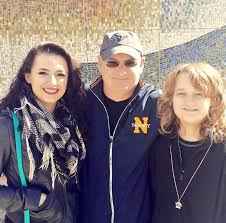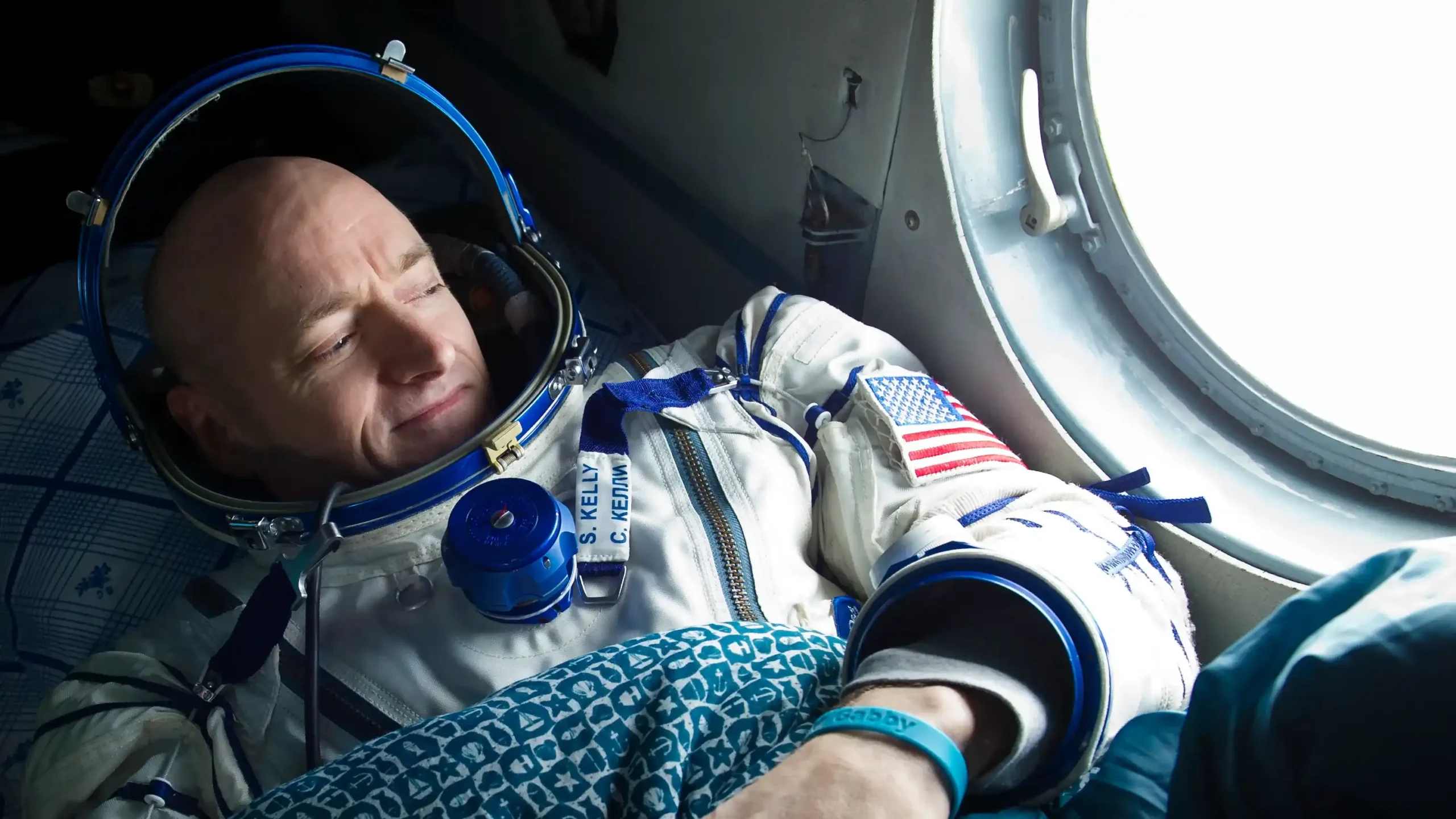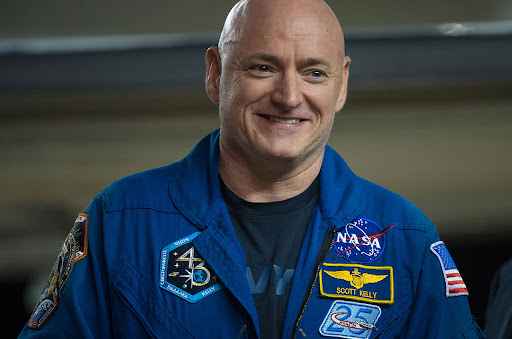Scott Kelly is a retired American astronaut, engineer, and naval aviator renowned for his extensive contributions to space exploration, including commanding the International Space Station (ISS) on multiple missions and participating in a historic year-long mission to study the effects of long-duration spaceflight on the human body.
Early Life and Education
Born on February 21, 1964, in Orange, New Jersey, Scott Joseph Kelly grew up in a family rooted in public service. His parents, Patricia (née McAvoy) and Richard Kelly, both served as police officers, instilling in Scott and his identical twin brother, Mark Kelly, a strong sense of duty and discipline from an early age.
The Kelly twins attended Mountain High School in West Orange, New Jersey, graduating in 1982. Scott’s initial foray into higher education began at the University of Maryland, Baltimore County. However, seeking a more structured environment that aligned with his burgeoning interest in aviation and engineering, he transferred to the State University of New York Maritime College. There, he earned a Bachelor of Engineering degree in Electrical Engineering in 1987.
Eager to further his expertise in aviation, Kelly pursued a Master of Science in Aviation Systems at the University of Tennessee, graduating in 1996. This advanced education complemented his practical experience and laid the groundwork for his future endeavors in aerospace.
Scott Kelly’s Family
Scott Kelly was born to Richard and Patricia Kelly in Orange, New Jersey. His father was a police officer, and his mother was one of the first female police officers in their town. Scott has an identical twin brother, Mark Kelly, who is also a former NASA astronaut and currently serves as a U.S. Senator from Arizona. The Kelly brothers made history as the only twins to have both traveled to space.

Scott was previously married to Leslie Yandell, and they have two daughters together. Later, he was in a relationship with Amiko Kauderer, a former NASA public affairs officer. His family has played a crucial role in his life, supporting his career in aviation and space exploration.
Scott Kelly’s Personal Life
Beyond his illustrious career as an astronaut, Scott Kelly has led an eventful personal life. He has been open about his early struggles with academics and how finding his passion for aviation transformed his future. Kelly was previously married to Leslie Yandell, with whom he shares two daughters. Later, he was in a relationship with Amiko Kauderer, a former NASA public affairs officer.
Kelly is also a passionate advocate for education, space exploration, and scientific research. Since retiring from NASA, he has authored books, including Endurance: A Year in Space, A Lifetime of Discovery, where he shares his experiences from his historic year in space. In addition to public speaking engagements, he is active on social media, using his platform to discuss space-related topics and current affairs.
Detailed Bio Table
| Attribute | Details |
|---|---|
| Full Name | Scott Joseph Kelly |
| Date of Birth | February 21, 1964 |
| Place of Birth | Orange, New Jersey, U.S. |
| Parents | Patricia (McAvoy) Kelly and Richard Kelly |
| Education | Bachelor of Engineering in Electrical Engineering from State University of New York Maritime College; Master of Science in Aviation Systems from the University of Tennessee |
| Height | Approximately 5 feet 7 inches (170 cm) |
| Career | Naval Aviator, Test Pilot, NASA Astronaut |
| Space Missions | STS-103, STS-118, Expedition 25/26, Expedition 43/44/45/46 (Year-Long Mission) |
| Total Time in Space | 520 days |
| Net Worth (2025) | Estimated at $500,000 |
Naval Career
Upon completing his undergraduate studies, Kelly embarked on a career as a naval aviator. He received his commission in the U.S. Navy in 1987 and earned his wings as a naval aviator in 1989. Demonstrating exceptional aptitude, he was selected for training as a test pilot, a role that demands precision, analytical skills, and the ability to operate under pressure.

As a test pilot, Kelly contributed to the evaluation and development of various aircraft systems, ensuring their safety and effectiveness for operational use. His tenure in the Navy not only honed his piloting skills but also ingrained a meticulous approach to problem-solving—qualities that would prove invaluable in his subsequent career with NASA.
NASA Career
In 1996, Kelly’s distinguished military service and technical acumen led to his selection as an astronaut candidate by NASA. This marked the beginning of a remarkable career in space exploration, characterized by multiple missions and leadership roles.
STS-103: Servicing the Hubble Space Telescope
Kelly’s inaugural spaceflight occurred in December 1999 as the pilot of Space Shuttle Discovery on mission STS-103. This mission aimed to service and upgrade the Hubble Space Telescope, ensuring its continued operation and enhancing its observational capabilities. The crew successfully replaced gyroscopes and performed other critical maintenance tasks, extending the telescope’s lifespan and scientific contributions.
STS-118: Assembly of the International Space Station
In August 2007, Kelly commanded Space Shuttle Endeavour on mission STS-118. This mission focused on assembling components of the ISS, delivering supplies, and conducting educational outreach activities. Under Kelly’s leadership, the crew installed a new truss segment and a new gyroscope, vital for the station’s structural integrity and orientation control.
Expeditions 25 and 26: Long-Duration Spaceflight
Kelly’s third spaceflight involved a long-duration mission aboard the ISS as a flight engineer for Expedition 25 and commander of Expedition 26. Launching aboard Soyuz TMA-01M in October 2010, he spent approximately five months in space. During this period, Kelly oversaw numerous scientific experiments, maintenance tasks, and international collaborations, contributing to the station’s continuous operation and research output.
Year-Long Mission: Expeditions 43 to 46
Perhaps the most notable chapter of Kelly’s career was his participation in a year-long mission aboard the ISS from March 27, 2015, to March 1, 2016. Alongside Russian cosmonaut Mikhail Kornienko, Kelly aimed to study the effects of prolonged spaceflight on the human body, providing critical data for future missions to Mars and beyond.
This mission involved comprehensive biomedical research, including studies on vision changes, bone density loss, and the psychological impacts of isolation. The findings have been instrumental in developing countermeasures to protect astronauts on extended missions, thereby advancing human space exploration capabilities.
Scott Kelly’s Career Overview
| Year | Event | Details |
|---|---|---|
| 1987 | Commissioned as a Naval Aviator | Graduated from U.S. Merchant Marine Academy and joined the U.S. Navy. |
| 1993 | Became a Test Pilot | Attended the U.S. Naval Test Pilot School and became a test pilot. |
| 1996 | Selected as NASA Astronaut | Chosen by NASA as part of Astronaut Group 16. |
| 1999 | First Spaceflight – STS-103 (Space Shuttle) | Served as a pilot on the Space Shuttle Discovery mission. |
| 2007 | Mission Commander – STS-118 | Commanded the Space Shuttle Endeavour mission. |
| 2010 | ISS Expedition 25/26 | Served as ISS Commander, spending 159 days in space. |
| 2015-2016 | One-Year Mission on ISS | Spent 340 consecutive days in space for NASA’s Twins Study. |
| 2016 | Retired from NASA | Officially left NASA and the U.S. Navy after 20 years of service. |
| 2017-Present | Author & Public Speaker | Wrote Endurance: A Year in Space, A Lifetime of Discovery and advocates for space research. |
Latest News
As of March 19, 2025, retired astronaut Scott Kelly appeared on Fox News with anchor Bret Baier to discuss the recent return of NASA astronauts Butch Wilmore and Sunita Williams from the International Space Station (ISS). Kelly, renowned for his own year-long mission aboard the ISS, provided insights into the challenges of long-duration spaceflight and the significance of their safe return.
Additionally, Kelly’s wife, Amiko Kauderer, recently announced her decision to discontinue using the social media platform X (formerly Twitter), clarifying that this change pertains solely to her online presence and does not affect their personal relationship.
Social Media Accounts
| Platform | Handle | Link |
|---|---|---|
| @StationCDRKelly | twitter.com/StationCDRKelly | |
| @stationcdrkelly | instagram.com/stationcdrkelly | |
| Scott Kelly | facebook.com/StationCDRKelly |
Physical Appearance
Scott Kelly stands at approximately 5 feet 7 inches (170 cm) tall. His career as a naval aviator and astronaut required maintaining a high level of physical fitness. Throughout his missions, especially during his year-long stay on the ISS, Kelly adhered to rigorous exercise routines to counteract the effects of prolonged weightlessness, such as muscle atrophy and bone density loss.
Net Worth as of 2025
As of 2025, Scott Kelly’s net worth is estimated at $500,000. This valuation considers his earnings from his naval and NASA careers, book royalties, and speaking engagements. Despite the modest figure compared to other public figures, it reflects his dedication to public service and exploration rather than commercial pursuits.
Scott Kelly’s enduring legacy lies in his contributions to human spaceflight, particularly in understanding the physiological and psychological challenges of long-duration missions. His experiences continue to inform and inspir
FAQs
Are Scott Kelly and Mark Kelly related?
Yes, Scott Kelly and Mark Kelly are identical twin brothers.
What is Scott Kelly famous for?
Scott Kelly is famous for his year-long mission aboard the International Space Station (ISS) and his contributions to space exploration.
What happened to astronaut Scott Kelly?
Scott Kelly retired from NASA in 2016 after spending 340 days in space, studying the effects of long-duration spaceflight on the human body.
Did Scott Kelly have ADHD?
Yes, Scott Kelly has openly shared that he was diagnosed with ADHD as a child and struggled academically before finding his passion for aviation and space.


